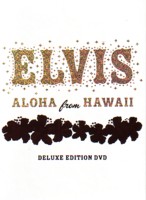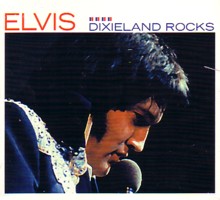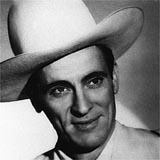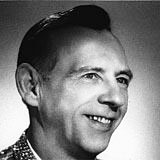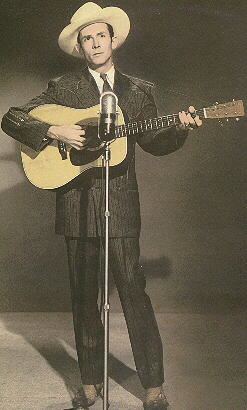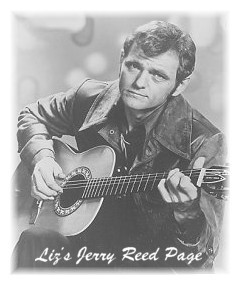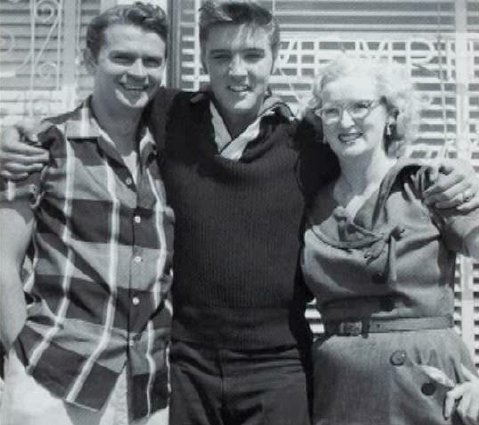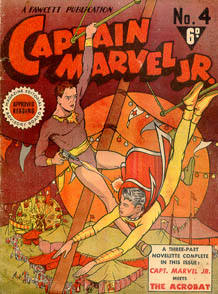 |
 |

Hi everyone The big news this week is a rumor that the partnership between EPE and Cirque du Soleil to produce a series of Elvis themed shows has collapsed. There were initially mixed reports and EIN had sought clarification from EPE. We are pleased to say that earlier today it was confirmed that the partnership is still standing and Cirque du Soleil's "Elvis" is proceeding! Nigel & Piers Now on www.elvisinfonet.com:
How Country Music Influenced The KingThroughout his career, country music and Elvis were closely intertwined. Not surprisingly, country music was one of the seminal musical influences on the young Elvis as he grew up in the urban south, an area characterised as a hotbed or cross-cultural musical melting pot of country, gospel and rhythm and blues. By the late 1940s around 650 US radio stations carried country music, the majority of them located in the southern States. It was because of this explosion in the number of country radio stations that artists including Hank Snow, Eddy Arnold and Hank Williams gained a recognition that their musical predecessors would have envied.
Appearing weekly, Elvis’s exposure on the Hayride would be an early catalyst for his eventual historic appearances on television - the carriage of Elvis’s important ‘visual’ element to a national and international audience being the instrument that would solidify and ensure his arrival as the twentieth century’s biggest musical star. From his appearances on the Hayride, a 1996 release ‘The Louisiana Hayride Archives Volume 1 Elvis Presley’ showcased Elvis’s performances between October 1954 and December 1956 including the previously unreleased and historically important but unfortunately inferior sound quality ‘Hearts of Stone’. Other tracks included Maybelline, I Don’t Care If The Sun Don’t Shine, I Was The One and Blue Moon of Kentucky. Robert Matthew-Walker comments that Elvis’s musical fusion of black music and country music was (is) wholly successful. This is all the more important as earlier attempts to mix the two were unable to break away from the instrumental make-up of the classic jazz or blues bands. Elvis, Scotty, Bill and later D J formed what endures as the classic make-up of the rock band - drums, bass, rhythm and lead guitar. Sam Phillips was fully aware of the importance of both country and rhythm and blues to the southern audience and deliberately released Elvis singles with the ‘A’ side being an r&b number and the ‘B’ side a country song. Those five Sun singles were That’s All Right, Mama/Blue Moon of Kentucky; Good Rockin’ Tonight’/I Don’t Care If The Sun Don’t Shine; Milkcow Blues Boogie/You’re A Heartbreaker; Baby, Let’s Play House/I’m Left, You’re Right, She’s Gone and Mystery Train/I Forgot To Remember To Forget. While touring with Hank Snow in 1955, a prominent American music magazine, The Country Song Roundup featured a story ‘Elvis Presley - Folk Music Fireball’. This followed national features in Cowboy Songs and C&W Jamboree. By November 1955 Elvis had been awarded the ‘New Star of the Year’ award by the C&W Jamboree for topping their readers poll with 250,000 votes!!!
Charles Wolfe commented: ‘Throughout his career, Elvis kept returning to his country roots. He had grown up during the heyday of Hank Williams, Red Foley and Bill Monroe, and he often paid tribute to them. He was one of the first to contribute to the Country Music Hall of Fame in 1960.’ Due to Elvis’s commitments in Hollywood there were only a few country tracks released during his movie years of the 60s. The album ‘Elvis For Everyone’ included a memorable version of Hank William’s classic ‘Your Cheatin’ Heart’. In 1967 Eddy Arnold’s ‘You Don’t Know Me’ was featured in Clambake while another Arnold track ‘Just Call Me Lonesome’ was included as a bonus track on the movie’s soundtrack album. Whenever possible, Elvis took the opportunity to record his movie soundtracks in the country music capital, Nashville - for example the soundtracks for Kissin’ Cousins (1963), Harum Scarum (1965) and Clambake (1967) were all recorded in RCA’s Studio B in Nashville . When there Elvis was backed by prominent country musicians including Charlie McCoy (harmonica/bass), Floyd Cramer (piano), Homer ‘Boots’ Randolph and Glen Campbell (guitar).
In his final years Elvis frequently returned to his country roots both on stage and in the recording studio. His live performances featured many country songs including ‘Funny How Time Slips Away’, ‘Help Me’ (a hit for Larry Gatlin), ‘Let Me Be There’ (originally by Olivia Newton John), ‘You Gave Me A Mountain’ (which also charted for Marty Robbins) and ‘‘I’m So Lonesome I Could Cry’. In the studio Elvis recorded four songs from Kris Kristofferson (‘Help Me Make It Through The Night’, ‘Why Me Lord’, ‘For The Good Times’ and ‘Help Me’), two from Gordon Lightfoot (‘Early Morning Rain’ and ‘For Loving Me’), Bobby Bare’s ‘Find Out What’s Happening’, Mary Robbins’ ‘You Gave Me A Mountain’ and one of Elvis’s favourites ‘Funny How Time Slips Away’. Other country tracks were ‘Green, Green Grass of Home’ (although Elvis’s version was based more on Tom Jones pop version than Porter Wagoner’s original country interpretation), ‘Fairytale’ (a major hit for the Pointer Sisters), ‘Susan When She Tried’ and the Jim Reeves country standard ‘He’ll Have To Go’. On the recording front more than 80 Elvis singles have made the Billboard Country Charts, 11 of them reaching the top spot. ‘I Forgot To Remember To Forget’ (the ‘B’ side of Elvis’s fifth Sun single, Mystery Train) was the first of these and enjoyed an amazing 40 weeks on the Country charts. Others to hit the top spot were ‘Heartbreak Hotel’, ‘She Thinks I Still Care’, ‘Guitar Man’, ‘I Was The One’ and ‘Loving You’. One of the most requested songs since Elvis’s death in 1977 is ‘Always On My Mind’, destined to become an even bigger hit when released by country superstar, Willie Nelson. In 1995 William Ruhlmann sat around conversing with several Elvis biographers. Dave Marsh observed: "Oh, he must have been listening to Ray Price a lot." because he’d been doing a lot of Ray Price numbers, which figures, because Ray was really huge right then, the early 70’s. Price had hits with ‘For The Good Times’, ‘Funny How Time Slips Away’, ‘Release Me’, ‘I’ll Be There’ and ‘Faded Love’ - all songs covered by Elvis. While the Price influence was true in the early 70s, if we considering his career as a whole there is one country artist who arguably influenced Elvis more - Eddy Arnold. In the next part of this series I will examine the Arnold influence. In a future edition of our Spotlight On The King series we will examine the significant impact on Elvis of country music superstar, Eddy Arnold. Sources: All Shook Up, Richard Middleton in ‘The Elvis Reader’, Kevin Quain (ed) Elvis Country, RCA, 1970 Elvis Great Country Songs, BMG, including liner notes by Charles Wolfe Elvis Sessions II, Joseph A. Tunzi Last Train To Memphis , Peter Guralnick Ray Price, American Originals, CBS, 1989 Studies in Modern Music - Elvis Presley, Robert Matthew-Walker The Essential Eddy Arnold, BMG, 1996 The Louisiana Hayride Archives, Vol. 1 Elvis Presley, Branson Gold Records, 1996 Walk A Mile In My Shoes, William Ruhlmann, Goldmine, 19 January 1996 This edition of Spotlight On The King was prepared by Nigel Patterson. It was originally published in Elvis Monthly. © 2000 & 2003 Read more "Influences on The King" in EIN's Spotlight section
Elvis with Sam Phillips & Marion Keister Quote of the WeekKaonashi about one of the latest American Idol hopefuls auditioning in Memphis: "Robert Holmes claims he sounds just like Elvis. Um, yeah. Maybe if Elvis had his balls cut off when he was still alive. Next!"Aussie & NZ fans - join EIN in Memphis this August on our:"Ultimate 30th Anniversary Tour!" With this year's Elvis Birthday celebration over, the excitement is starting to build and there is now only a little over 6 months before EIN's Ultimate 30th Anniversary Tour! departs Australia for the US.
|
| Entertainment insiders are abuzz about a new controversy, and this time it has nothing to do with Lohan's "water bottle" or Justin's latest ladyfriend. This time, it's Elvis and Dakota Fanning who have everyone all shook up. Seems that 12-year-old actress Fanning's role in the movie Hounddog is that of a child who is brutally raped, then turns to the music of Elvis for comfort.
The scene is so brutal that the film's investors actually pulled out, and production had to be stopped until new investors with deep pockets and thicker skin were located. Despite the controversy — or perhaps because of it — the movie was nominated for the Grand Jury Prize at this year's Sundance Film Festival. The question now: Is Memphis ready for the dubious attention Hounddog will bring to its most famous dead resident? (Source: MemphisFlyerOnline) |
 |
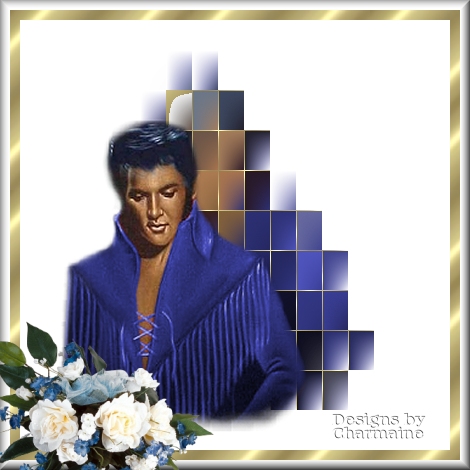
Visit Charmaine's Elvis Graphics Page
Rex & Elisabeth Mansfield book to become film
The American company Newly-minted Cinema League has bought the film and tv rights for the book "Sergeant Presley: The Untold Story of Elvis' Missing Years". The story follows the basictraining from Elvis in Texas untill the end of his army life in Germany and will contain subjects as his meeting with Priscilla and his starting addiction to prescripted medication. The authors are Rex and Elisabeth Mansfield. Rex was a fellow soldier from 1958 to 1960 and his wife is romanticaly linked to Elvis. The start of the shooting is scheduled for next summer. |
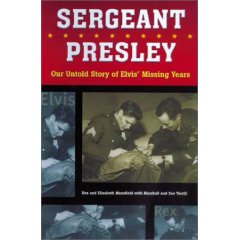 |
Where the name Elvis came from
The original form of the name is Scandinavian:
Alviss = All Wise
Ailbhis - (AL-vis) 6th C. Irish saint; perhaps also can be Ailbhe. Anglecized as Elvis
The reason for the spelling of Aron with only one A is because the names Jesse Garon and Elvis Aron were meant to rhyme. For some odd reason in the early 20th century, it was popular to rhyme the middle names of your children (it's rampant in my mom's family, for example).
Elvis switched it to Aaron in later years to reflect the biblical spelling.
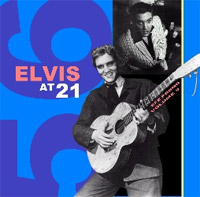 |
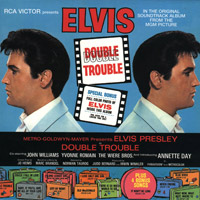 |
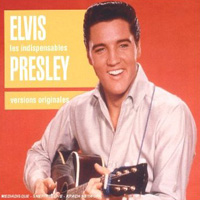 |
ETA record
Last year Elvii at the Collingwood Elvis Festival in Ontario, Canada set the world record for the biggest number of Elvis look-a-likes together (97). Earlier this month the record was smashed as 147 jumpsuited & be-wigged Elvis tragics grouped together at the Annual Parkes Elvis Festival in rural Australia. Well the Colingwood folks aren't too happy about their record being taken...and are vowing to get it back!
With 170 tribute artists expected to participate in the Collingwood Elvis Festival in 2007 and even more in the years to come, organizers there said therevare more than confident they can break the new record of 147 when the time is right. (Source: Parkes Champion Post)
America = Elvis!
by Erick Raven - DailySkiff
The legacy of America is the blending of black, white and Native American into a whole greater than its ndividual parts. The music of America is perhaps its greatest export. It was built upon the foundation of slaves, poor southern whites, Native American rituals and aristocratic European immigrants. Jazz is America's classical music and it was the first export to give the rest of the world a sense of what America is and what it could potentially represent for the rest of the world. Yet the ultimate personification of American culture did not come until 30 years after the jazz revolution began.
Simply put, America can be summed up in two words: Elvis Presley. This year marks the 30th anniversary of Presley's death and many are reconsidering the role he played in pop culture history. When he exploded upon the American cultural landscape in 1956, Presley was an enigma to all except the city of Memphis, and possibly New Orleans. This guy performed the most simple, yet most profound, kind of music and elicited a firestorm of response. There were whites who said he sounded black, blacks who said he didn't sound white but certainly not black. He was what author Stephen Talty called the personification of Mulatto America. In his book of the same name, Talty writes, "The moment when the young Elvis, out of nowhere, started singing 'Blue Moon of Kentucky' in his half-breed style is the pivot on which much of modern culture turns. Rock and roll, youth culture, and all that followed was born that day in Memphis." What America exported to the rest of the world as a result of this poor, white singer would change societies the world over. According to The Beatles Anthology, John Lennon said, "I'm an Elvis fan because it was Elvis who really got me out of Liverpool." In an April 2004 issue of Rolling Stone Magazine, U2's lead singer, Bono, wrote that Presley had "hips that swivel from Europe to Africa, which is the whole point of America, I guess." |
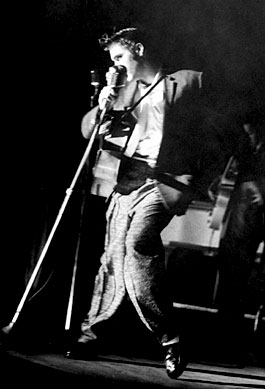 |
Bono wrote, "In Elvis, you have the blueprint for rock and roll: The highness - the gospel highs. The mud - the Delta mud, the blues. Sexual liberation. Controversy. Changing the way people feel about the world."
In recent years, Presley has been thought of more as an overweight Vegas circus act than the socially revolutionary figure he actually was. Most rock and hip-hop musicians have no idea how many doors were opened for them by Presley's 1956 cultural explosion.
In Presley, the divisions America likes to focus on were temporarily blurred, and a new possibility of seeing and hearing the world was opened up. Hopefully we, as a nation, can be as harmonized socially as Presley was musically and show the rest of the world what America is supposed to be about. Erick Raven is a first-year graduate student in the School of Education from Grand Prairie.
Contact EIN
The EIN E-Alert is a free information service from the Elvis Information Network (EIN) for Elvis fans. If you do not wish to receive future editions of the EIN E-Alert simply reply to this message with REMOVE in the subject line
